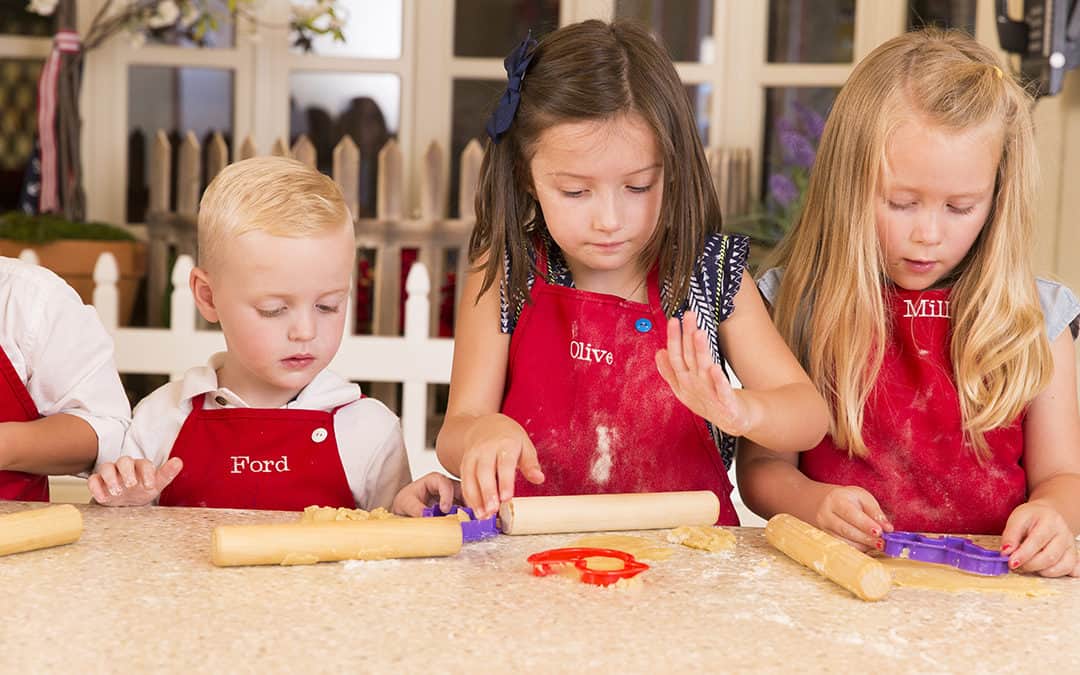At Kids Village, we love our yearly traditions. From the autumn Humanitarian Haunt to Christmas in the Village, seasonal decorations to graduation, each and every tradition is special to the students, teachers, and families of our school.
Each year, our teachers and staff put hundreds of hours of work into planning and organizing our yearly traditions. They’re an important part of our culture, not just because they provide fun activities that bring Kids Village families together and break up the school year, but also because they provide a sense of belonging, give our students and families something to look forward to, and help us place meaning in different aspects of the school year.
Traditions can be any combination of stories, beliefs, rituals and customs that your family maintains and passes on from one year to the next (and one generation to another).
Children and family psychologists agree that these traditions and rituals are an important part of childhood development.
Holiday traditions help establish meaning for the holidays and detract from commercialism, all while strengthening the family bond. It gives children and adults alike something to look forward to and provides memories that will be stronger and more meaningful than any gift or treat your family can receive.
“Every year, the day before Thanksgiving, we have a family pie day. All of the sisters in law and cousins get together and bake all of the desserts for the big meal. There is Christmas music, tiny rolling pins, and always a big mess. But it’s so much fun, and something we all look forward to each year.” – Kelley G.
Establishing holiday traditions within your family helps to give the holiday greater meaning. It consciously links the holiday to family values and cultural meaning while giving your children something more than presents or treats to remember.
“Every year we cut down our own Christmas tree. Our boys love it. We always go with my sister-in-law and her family down to Manti. The bigger boy cousins pull my little boys up the mountain and all the cousins play and help pick out our tree. And we always eat lunch at the same spot on the way back home.” – Kristy G.
Another important part of traditions, whether they are holiday traditions, religious beliefs, seasonal rituals or daily routines, is passing on your family culture. This is important because it strengthens family bonds as well as family pride. It gives your family something extra special to provide unity as well as individualism, and to provide more meaning to the world around them.
It also helps to pass on heritage and important family beliefs.
Traditions also begin to create a routine of seasonality and rhythm to children. Whether it’s Sunday dinners with homemade rolls, monthly movie night at the theater, or changing out decorations every season, these little traditions culminate into your child understanding and sensing time more accurately (and in a fun, meaningful way).
“My daughter and I write a list every summer of all the fun activities we want to do. Every morning she wakes up excited to look at the list and choose our day’s adventure. It helps break up the days, gives her something to look forward to, and makes summer more meaningful for both of us.” Alexis D.
What are some of your family’s most important or meaningful traditions?


For example, after years of spending Christmas morning with Kate’s parents or mine, last year we did Christmas morning at our own home and started new McKay family holiday traditions with Gus.
Traditions don’t have to be time-consuming either, although it’s worth taking a moment right now to think about the fact that spending time together is what family traditions are all about.